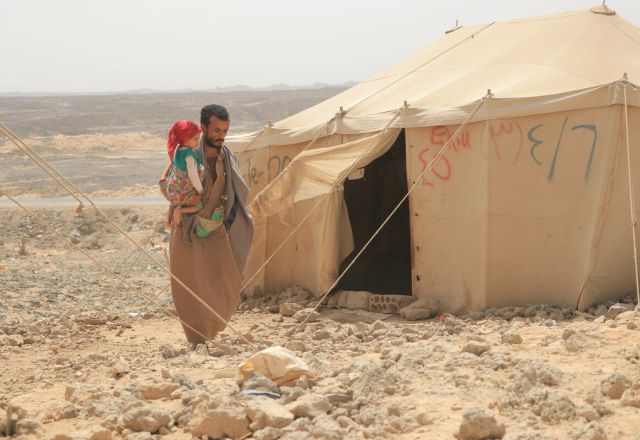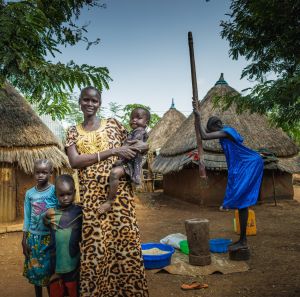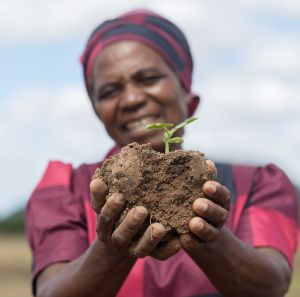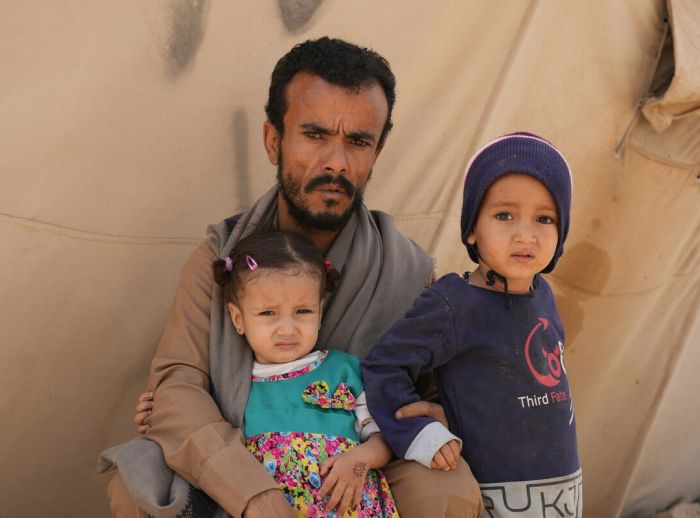
In war-torn Yemen, countless families have been displaced from their homes, forced to endure a life of uncertainty and hardship.
Among them is the story of Mufethel Ahmed Ahmed Ismail Al-HaraziI and his family, who were uprooted from their village and displaced to Marib.
Their story reflects the larger crisis of displacement and the urgent need for support in Yemen.
Life Before Displacement
Before their displacement, the Al-HaraziI family enjoyed a life of relative stability and contentment in their village. They had a place to call home, engaged in agricultural work, and revelled in the simple joys of life.
With their land, they were able to grow their own food, ensuring their sustenance and a sense of self-sufficiency. Education was limited, but they made the most of their circumstances, studying under trees in the village.
Challenges of Displacement
Since their displacement, accessing healthcare has become an arduous task for the Al-HaraziI family. The nearest hospital is located far from their current location, and the lack of transportation options makes it a tiring and time-consuming journey.
This is particularly concerning as both their son and daughter have experienced health issues. The family has had to endure long walks, often under the scorching sun, to seek medical treatment.
Lack of resources and disrupted breastfeeding due to displacement have further compounded their child's health problems.
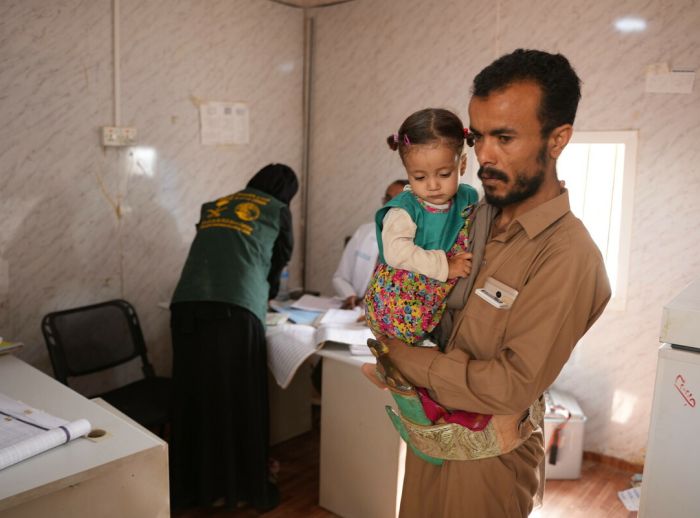
High Prices and Scarcity
Displacement has also brought about severe economic hardships for the Al-HaraziI family. Prices of essential commodities have skyrocketed in the areas they have sought refuge, making it increasingly challenging for them to afford even the most basic necessities. The shortage of oil and cooking gas has further exacerbated the crisis, impacting all aspects of daily life. The family can barely afford potatoes and tomatoes, let alone provide their children with nutritious food or the opportunity to eat fruits and vegetables.
Unstable Income
Displacement has severely affected the family's income stability. The lack of regular employment opportunities has left them struggling to make ends meet.
Mufethel Ahmed Ahmed Ismail Al-HaraziI and his wife have resorted to odd jobs and collecting empty cans to sell, scraping together whatever little income they can.
The absence of a stable source of income perpetuates their vulnerability and prevents them from breaking free from the cycle of poverty.
Loss of Possessions and Identity
One of the most distressing aspects of displacement is the loss of personal possessions and the erosion of identity. The Al-HaraziI family has experienced the heartache of leaving their cherished belongings behind each time they are uprooted from one place to another.
Displacement has robbed them of the familiarity of their homes, leaving them feeling adrift and disconnected from their roots.
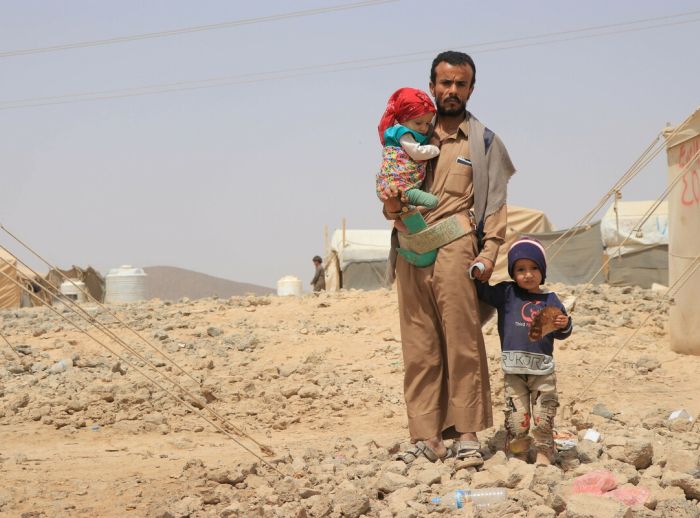
A Never-Ending Cycle of Displacement
The Al-HaraziI family finds themselves caught in a relentless cycle of displacement, moving from one temporary location to another. Just when they begin to settle in one place, circumstances force them to uproot once again, disrupting their lives and adding to their hardships.
This perpetual state of instability hinders their ability to rebuild their lives and work towards a more promising future.
The Impact on Children
The dire conditions of displacement have taken a toll on the Al-HaraziI children's well-being. Malnutrition has become a grave concern, with the family struggling to provide adequate nutrition for their daughter. Disrupted breastfeeding due to displacement and the inability to afford nutritious food have contributed to her health struggles. Additionally, the lack of proper shelter exposes the children to the elements, leading to sunburns, fevers, and other health issues.
Education, A Dream in Peril
Displacement has disrupted the children's education, depriving them of the opportunity to pursue their dreams. Limited access to schools and the constant upheaval have hindered their educational journey.
Mufethel Ahmed Ahmed Ismail Al-HaraziI, who himself had only reached grade 6, aspires for his children to receive a complete education, even dreaming of them graduating from university. However, the current circumstances make this dream a distant and uncertain possibility.
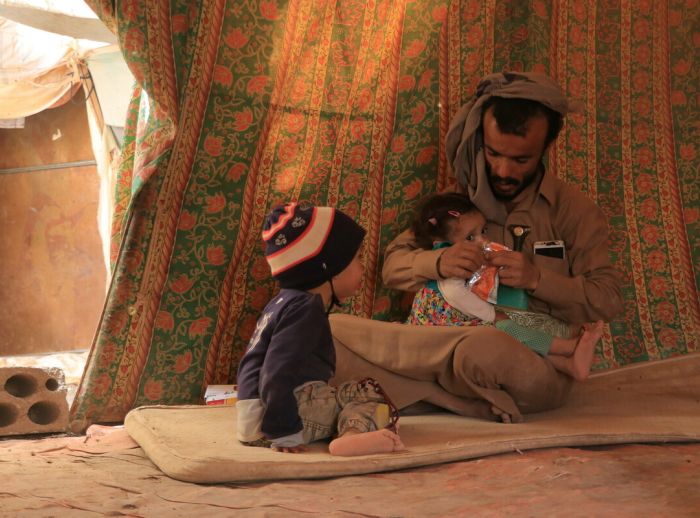
The Al-HaraziI family's story reflects the harsh reality faced by displaced families in Yemen.
From the challenges of accessing healthcare and meeting basic needs to the loss of possessions and the impact on children's education, they exemplify the struggles endured by countless individuals caught in the crossfires of conflict.
It is imperative for the international community to provide support and aid to alleviate the plight of families like the Al-HaraziIs.
Only through collective efforts can we hope to restore their dignity, offer them a chance at a better life, and ensure that their dreams of stability, education, and a brighter future become a reality.
